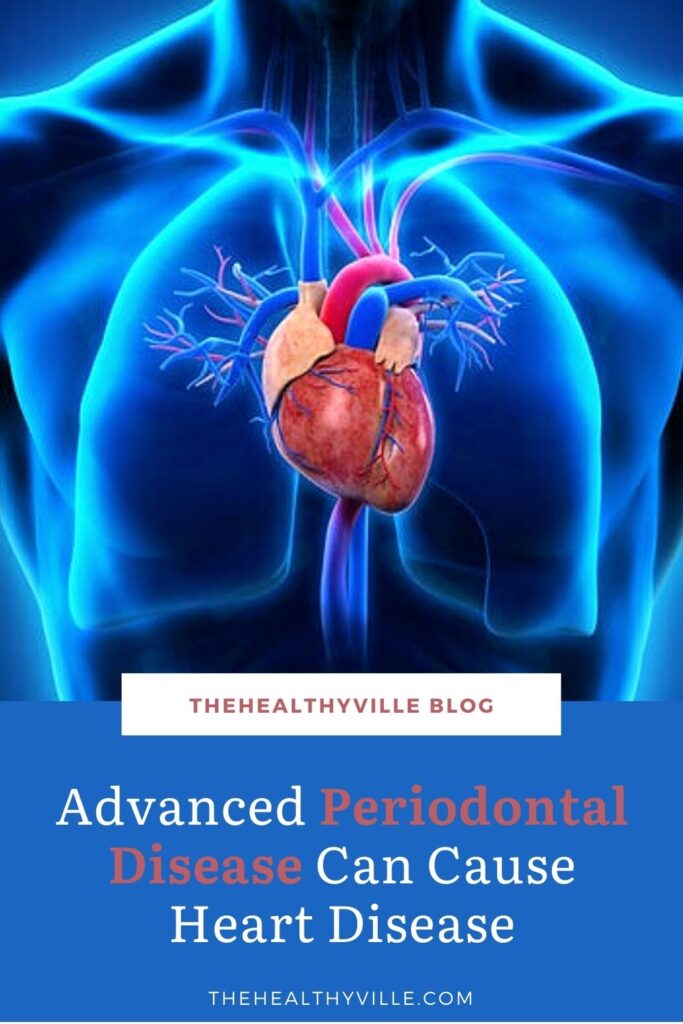Advanced periodontal disease can be linked to cardiovascular problems. A study found irrefutable evidence that the two are related. See how!
The presence of the same bacteria in an advanced periodontal disease and in the coronary arteries after suffering a heart attack, suggests that there is a relationship between both conditions.
In fact, according to some research, cardiovascular and gum health could be related. It is due to the presence of the same bacteria in the gums and the heart.
Heart disease has increased considerably in recent years and many of its risk factors have to do with poor diet and a sedentary lifestyle.
However, it is possible that one of the triggers of these diseases is chronic gum conditions that, due to the effects of bacteria, could cause cardiovascular diseases.
The investigation…
The study in this regard was carried out by a research group at the University of Orebro, in Sweden, and was published by the journal Infection and Immunity.
According to this research, the activity of the bacterium Porphyromona gingivalis could alter some cells involved in arteriosclerosis and atherothrombosis, diseases that increase the risk of suffering a sudden heart attack.
Advanced periodontal disease can cause cardiovascular disease
The same bacteria are one of the main causes of periodontitis, a chronic infection of the gums that damages the soft tissue that surrounds the teeth and attacks the bone that supports them.
In previous studies, this bacterium had already been found within the plaque of the coronary artery, in patients who had a history of a heart attack.
Thanks to other studies in animals, it was shown that this bacterial mechanism can trigger and accelerate aortic arteriosclerosis.
Importance of knowing periodontal diseases
Knowing which infections are due to Porphyromona gingivalis is a key aspect for taking preventive actions.
Periodontitis groups the set of inflammatory conditions that compromise the tissues around the tooth. In fact, these are what fix it to the bone tissue that surrounds the dental roots.
It is a chronic and progressive infection, which gives rise to periodic outbreaks of destruction caused by bacteria. But, genetic predisposition or poor oral hygiene habits can favor the growth of these bacteria.
Good oral health is key to good cardiovascular health
Periodontitis evolves silently day by day and dentists cannot usually detect it until in a fairly advanced stage. In fact, its early stages are characterized by the appearance of inflammatory symptoms, the clinical name of which is gingivitis.
- Some signs to watch out for are:
- Redness and swelling of the gums.
- Gum bleeding when brushing your teeth.
- Soft pain.
However, if you do not control the infection, the disease progresses to the second phase. The gingiva then detaches from the tooth and forms periodontal pockets. The most visible symptoms are:
- The recession or shrinkage of the gums.
- Longer teeth sensation.
- Mobility of the teeth.
- Gap between teeth.
- Change in the way the teeth fit together when biting.
- Increased tooth sensitivity.
- Gum pain.
- Appearance of abscesses.
- Bad breath.
Most periodontal diseases go unnoticed and dentists can diagnose them through a dental exam. Therefore, it is advisable to visit the dentist regularly.
Can you reduce the risk?
Gum and heart disease also coincide in some risk factors that could explain their relationship. These include:
- The consumption of tobacco.
- Diabetes
- The obesity.
- Stress.
- Poorly controlled diabetes.
You can reduce the risks of suffering from these diseases considerably by adopting a healthy lifestyle.
Remember…
Hygiene plays a decisive role, since it is the most effective method to deal with bacteria. For this reason, it is very important to keep your mouth healthy: brush your teeth correctly, floss and mouthwash.
However, you need to consult the dentist at the slightest symptom, to detect the disease early and prevent it from getting worse.
Don’t forget to SHARE how advanced periodontal disease can cause cardiovascular problems with your friends and family on your social networks!

